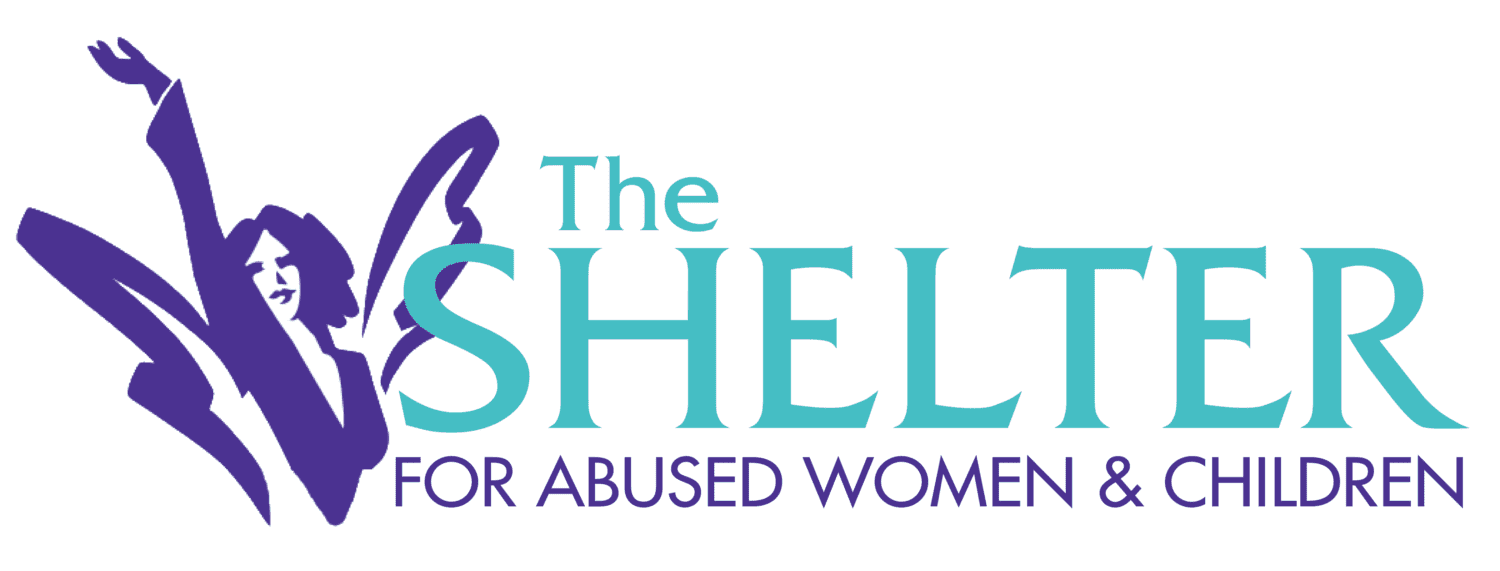Money control keeps domestic-violence victims from leaving
PLEASE NOTE! If you suspect you have experienced financial abuse, you may find useful resources from The Shelter’s Economic Empowerment program. CLICK HERE for more information.
By Katherine Hamilton
Naples Daily News – view print story
 Amal Bernal made $20,000 a month running a successful company with her husband, belonged to a country club and had an array of designer purses that even a Kardashian would envy.
Amal Bernal made $20,000 a month running a successful company with her husband, belonged to a country club and had an array of designer purses that even a Kardashian would envy.
From the outside, her life was glistening with promise — two beautiful children, a handsome man and endless amounts of money.
But no one knew the lengths her husband went to control her, Bernal said.
“It looks outwardly like you’re selling out. You see a woman who everyone knows is married to a jerk, but she has the Rolls-Royce and the fancy hair,” Bernal said. “You don’t know what’s going on — first of all, why is it about her and not him?”
Bernal said her marriage was abusive, with 20 years of physical, emotional and financial abuse.
“How did it get that far?” people would ask — as if leaving was simple.
A therapist with a master’s degree, she didn’t have her own checking account. Instead, her husband had her paycheck deposited in his account and rationed her $5 and a tank of gas to carry her through the week.
That was only the beginning of a long list of tactics Bernal said were used to keep her in her alabaster cage.
Let’s talk about financial abuse
That obvious question — “Why do they stay?” — has many heartbreaking and valid answers. But one common and often overlooked aspect of any abusive relationship is money.
Financial abuse — defined as “coercive control” by the federal Centers for Disease Control and Prevention — is often the unseen and debilitating perpetuation of all other types of abuse.
“To me, it’s just as bad as any other kind of abuse, because it’s how they control you,” Bernal said.
You don’t have to be wealthy to be financially abused, which is another common misconception, said Maylen Garcia, the former economic empowerment advocate for the Shelter for Abused Women & Children in Naples.
“Financial abuse is one of the main reasons why women stay in an abusive relationship, and why they return,” Garcia said. “Because many times they end up leaving by themselves or with the kids, and when they’re on their own, they go through so much hardship because they can’t support themselves and their kids, and they end up going back.”
What does financial abuse look like?
Working for five years as a professional advocate for victims of financial abuse, Garcia identified ways an intimate partner can make someone vulnerable financially.
She talked specifically about two types of abusive situations: one in which the victim has nothing to do with the finances and is left completely in the dark, and the other in which the victim’s own finances are exploited by the abuser.
Type 1 abusers:
- They don’t let you work.
- They make you ask for money to do anything.
- They hide or keep the money.
- They practice neglect — they don’t buy or refuse to buy medication, food and other important household items that make day-to-day living difficult.
- They have total control of the finances.
Type 2 abusers:
- They want you to work and take your paycheck.
- They make you pay for things.
- You have to ask for an allowance.
- They do things financially in your name without your knowledge or consent, such as opening bank accounts, credit cards and putting you into debt.
There are many ways the two types of abusive situations can be combined and manipulated to hurt the victims.
Abuse has deep roots in insecurity and jealousy and often is passed down through generations.
“Money is a way to control. If you make more than her, then of course it’s going to be hard for her to leave you. So you want to make sure she’s strapped in the relationship, and you find ways to do that,” Garcia said about how an abuser thinks.
Often, victims in financial abuse situations stopped working or were made to stop working, or they never worked or never finished their education. Likewise, victims who know less about finances and are in a financially abusive relationship might have no credit established or know how to be independent.
“I had stopped counseling for a long time to go into business with my ex-husband, so that’s another way that they ostracize you,” Bernal said. “They keep you off your kilter by removing you from what you’re good at and putting you in a situation where you are more dependent on them financially, which is what he did.”
Those factors, coupled with emotional and/or physical abuse, make the idea of leaving intimidating, especially when children are involved.
When the abuse was in the height of its cycle, Bernal said, she would take her children to live in hotels for up to three months at a time.
As a partner in her and her husband’s business, everything was in her name. Initially, she thought that was good. But after she left, he would stay home from work and let the multimillion-dollar company fall on her shoulders, she said.
“In the meantime, he would cut off the bank account, he would empty it. He would call the credit cards and report them stolen. If he couldn’t get to the car in time to remove the battery or the cellphones to remove the batteries so I couldn’t call, he would take the cars and hide them,” Bernal said.
Bernal began hiding money around the house and in shoe boxes and taking extra money out at the grocery store; at one point she had concealed more than $80,000. She even opened her own bank account to gain monetary freedom.
In the end, she lost it all to more financial trickery during their divorce when Bernal said he moved all of their debt to her name and all of their assets to his, sold off their factory machinery and worked for his sister for under-the-table cash so he could claim low income on his taxes and declare bankruptcy.
“When I left that marriage, I left $4 million in debt,” she said
Know the signs
According to the National Domestic Violence Hotline and New Hope for Women, these are some of the signs your partner is or could be an abuser:
- Extreme Jealousy
- Isolating you from your support system: work, friends, family.
- Demeaning, insulting, shaming and controlling.
- Quick involvement and unrealistic expectations
- Blames others for problems and feelings; hypersensitivity
- “Playful” use of force in sex; rigid sex roles
- Explosive behavior and moodiness; threats of violence
- Keeping you from your work or education
Bernal /said she wasn’t attracted to her ex-husband in the beginning. After their first blind date while she was in college, he began showing up at her house every day for six weeks, leaving love letters and presents.
He slowly wore her down, and she felt flattered by the attention. When recalling how it all began, she said she wished she had realized that his behavior wasn’t normal. His persistent personality turned domineering and abusive — the first time he hit her was when she was pregnant with their first child.
“Sometimes you think, ‘oh, so romantic, he wants to surprise me.’ If he does it once or twice in a year, OK, nice,” said Garcia, the former economic empowerment advocate. “But when it happens all the time, and you find out that you don’t have a voice or any decision in the relationship, most likely he’s going to become worse as the relationship progresses.”
Throughout their relationship, Bernal said he touched her inappropriately and she became sexualized. During their 20-year marriage, he never called her by her name, she said, but instead referred to her as “wife.”
“You’re just a pawn. You’re just a feed to his narcissism. You’re just an affirmation to his lack of self-esteem. He really is in control, and you affirm that by complying with all his demands and being afraid,” Bernal said.
Asking for help: The road to recovery
Recovering from financial abuse can take a few months to years, depending on the extent of the damage. The most important thing is to know what resources are available.
The Shelter for Abused Women & Children in Naples has programs and recovery plans to help women who have been placed in vulnerable financial situations. Addressing debt and credit damage is crucial throughout recovering from domestic abuse because it can take the longest.
“The first thing is safety,” Garcia said. “After safety, it would be financial abuse. Because first thing is your basic needs: shelter, food and clothing. Then after, to get food and clothing, you need money — that’s when financial abuse comes to be.”
Garcia recommended that women who are leaving an abuser stay in a shelter or with family or friends.
She said women who come to the Shelter For Abused Women & Children love the stability the emergency shelter provides. Women can stay for up to 42 days and can focus on finding a job, saving money for a rental deposit, assessing their situation, receiving counseling and building their resume.
The shelter has a two-year transitional housing plan to help families become independent. Advocates can also help women check their credit score and assess the steps they need to take to recover from financial abuse.
There is always a way
“I didn’t know that A, I was allowed to ask for help, and B, who to even ask for help,” Bernal said when recalling how her counselor in Utah referred her to the shelter in Naples.
She went from living in a mansion to living in a shelter — from making $20,000 a month to working at Macy’s as a part-time fragrance clerk at Coastland Center Mall.
“They paid me $8.25 an hour. I’d been to Harvard Business School. I had a master’s degree in counseling, been on the boards and run this huge multimillion-dollar company, and I went to Macy’s and humbly asked for a job, and I was even afraid they weren’t going to hire me,” she said.
But she had her own money for the first time in 20 years, and she remembered that she was a worthwhile person who could contribute.
The road to recovery for Bernal has been a long one. She’s come out from under millions of dollars of debt and extensive trauma.
Now, she is happily remarried, has adopted a son, is taking re-certification courses, and has opened her own practice called Create Pathways Counseling, where she provides life, relationship, career and corporate counseling.
Bernal said it is important to keep certifications fresh, stay employed and have a personal bank account.
“My hope is elevated when I speak to young women who are getting an education, who feel strong and empowered — who notice red flags and don’t put them away.”
Where to find help
- The Shelter For Abused Women & Children 24/7 Hotline: 239-775-1101; Office: 239-775-3862
- The National Domestic Violence 24/7 Hotline: 1-800-799-7233
- CCSO: 911 for emergencies; non-emergencies: 239-252-9300





